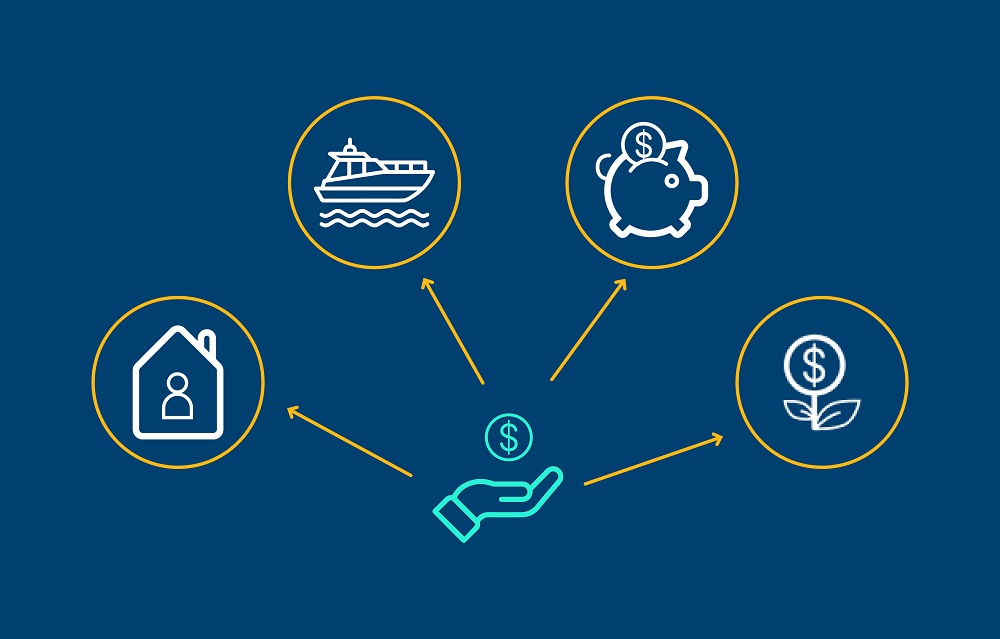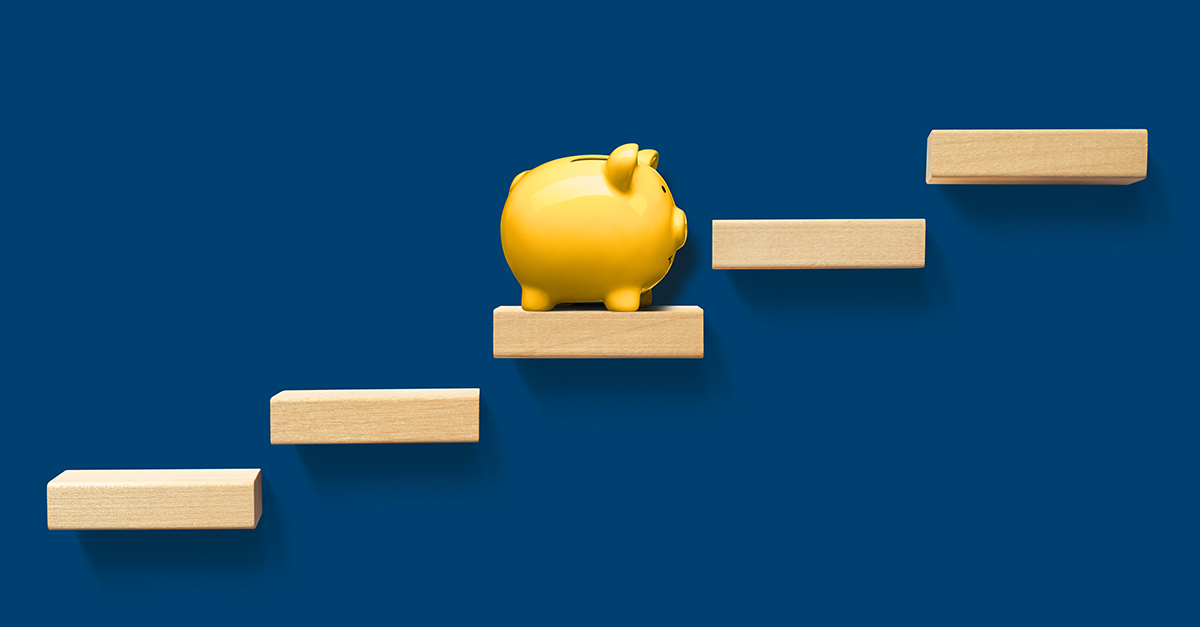My advice • May 14, 2020
modified on March 30, 2023
Interview - What to do with your tax refund
Meeting with Johanne Ethier, former advisor at our Laval branch

With today’s economy beset by inflation, interest rate hikes, and a looming recession, we’re all navigating a period of uncertainty—which is why evaluating your financial choices has become more crucial than ever. So, if you’re getting a tax refund this year, you may be asking yourself the best way to put it to good use. To help guide you towards the right decision for you, here are some expert tips from our advisor!
 Johanne Ethier, advisor at the time of the interview, is now a Mortgage Financing Advisor.
Johanne Ethier, advisor at the time of the interview, is now a Mortgage Financing Advisor.- What advice do you have for your customers who are expecting a tax refund?
- There’s no one-size-fits-all advice.
- It depends on each individual’s specific situation. I look at whether or not they have debt, if they’re saving for a project, how much they have contributed to their Registered Retirement Savings Plan (RRSP) and Tax-Free Savings Account (TFSA), and whether they have a Registered Education Savings Plan (RESP) or if they have set up a periodic savings plan.
- There are many ways to get the most out of this money! I recommend a balanced approach, which consists in splitting the amount for various purposes. For example, you can use part of it to pay off some credit card or other high-interest debts. Other good options would be to check whether it’s worthwhile to make an additional mortgage payment, depending on the current interest rate, or look into investments. You could also put some money aside for future projects or home renovations, and avoid having to borrow money when the time comes. Alternatively, creating an emergency fund for unexpected events is fitting given the current context. A good way to speed this up is to set up periodic savings, since this allows you to save without having to think about it!
- What factors should you consider when deciding what to do with it?
- When advising my clients, I look at the amount of money available and ask them questions to understand their current reality, needs and priorities. Using your tax refund for immediate gratification is tempting. But saving it now can also lead to other opportunities you can enjoy later. A good tip is to propose options that focus on ways to increase their savings, taking us back to the concept of periodic savings, which consists of setting some money aside on an automatic, ongoing basis. To learn about the many benefits of periodic savings, read the following article, “Have any goals? Think about saving on an ongoing basis.”
- Which investment vehicle do you suggest customers use when they decide to invest their tax refund?
- I would suggest some kind of registered savings—RRSP, TFSA or RESP—depending on the client’s financial, personal and family situation. I give my customers information about each of these investment vehicles based on their priorities and provide practical evidence of their long-term benefits. If my customers haven’t reached their yearly threshold and can invest a bit more, I recommend that they do so and suggest that they sign up for the periodic savings plan. I use the tax table that I keep handy to discuss various scenarios. We look at their taxable income together to see whether it would be worthwhile to decrease it with an RRSP contribution or if they could save more by putting money into their TFSAs.
- What advice do you have for your customers when talking about taxes in general and potential refunds?
- You can’t guarantee a tax refund, so I would recommend being careful. Usually, you get a tax refund when the tax withheld at the source during the year is greater than the annual tax owed. The amount of tax to be paid is based on several factors, such as marital status, personal and family income, RRSP contributions, whether the customer has children under the age of 18, etc. So I try to get as much information as possible to be able to give them sound advice and to get an overall picture of their finances. I ask my salaried customers if they have registered to a workplace pension fund and if they’re maximizing it, which is a great way to increase retirement savings. For customers nearing retirement age, I talk to them about spousal income splitting, which can be beneficial for them, but I always ask them to double-check with their accountant, as it depends on their financial situation.
- Is it a good idea to put a tax return toward a mortgage?
- In some cases, yes. Do the math first to see which is more worthwhile: paying off the mortgage or putting the money into an RRSP or TFSA. In this case, we compare the tax savings from an RRSP contribution, for example, to the interest savings from your mortgage payment. You can also use a hybrid strategy where you use part of the tax return to pay off part of the mortgage and save the rest in an emergency fund. The current pandemic has shown us how important it is to have a financial cushion. That’s a key piece of advice for those who can afford it. Such a fund brings peace of mind, which we could all use more of these days. Here’s an enlightening article on the subject.
- What long-term advice do you give your clients?
- Adopt a savings strategy to minimize how much tax you pay every year. There are a number of ways to do this, including discussing it with your advisor. I help improve my customers’ finances by working with them to develop, follow and regularly update their plan. It’s important that you fully understand your situation to achieve your goals, which involves some choices and effort, but is very worthwhile in the long run.
A Financial Health Assessment is the first step to better manage your personal finances. It helps paint a clear picture of your financial situation, define and prioritize your objectives, and suggest what you should do. Take your first step now and meet with your advisor.
Laurentian Bank encourages the development of its employees.
Johanne Ethier is now Mortgage Financing Advisor.
+ Legal Notices
The new investment accounts are offered by LBC Financial Services Inc. (LBCFS). LBCFS is a subsidiary of Laurentian Bank and a separate legal entity of Laurentian Bank. Laurentian Bank advisors are also registered LBCFS mutual fund representatives.
The articles on this website are for information purposes only. They do not create any legal or contractual obligation for Laurentian Bank and its subsidiaries.
These articles do not constitute financial, accounting, legal or tax-related advice and should not be used for such purposes. Laurentian Bank and its subsidiaries may not be held liable for any damage you may incur as part of such use. Please contact your advisor or any other independent professionals, who will advise you as needed.
The articles may contain hyperlinks leading to external sites that are not managed by LBC. LBC cannot be held liable for the content of such external sites or the damage that may result from their use.
Prior written consent from the Laurentian Bank of Canada is required for any reproduction, retransmission, publication or other use, in whole or in part, of the contents of this site.








